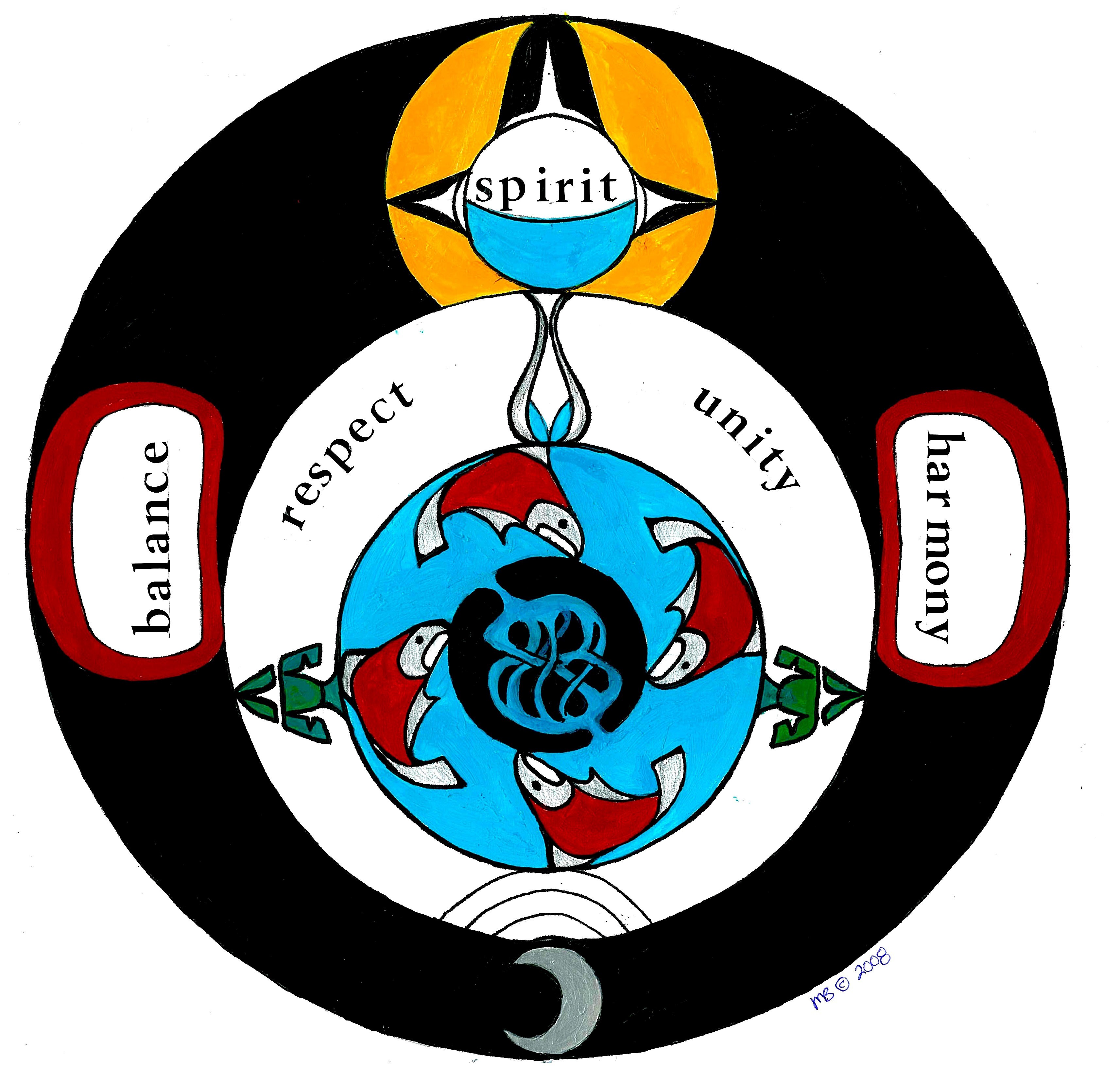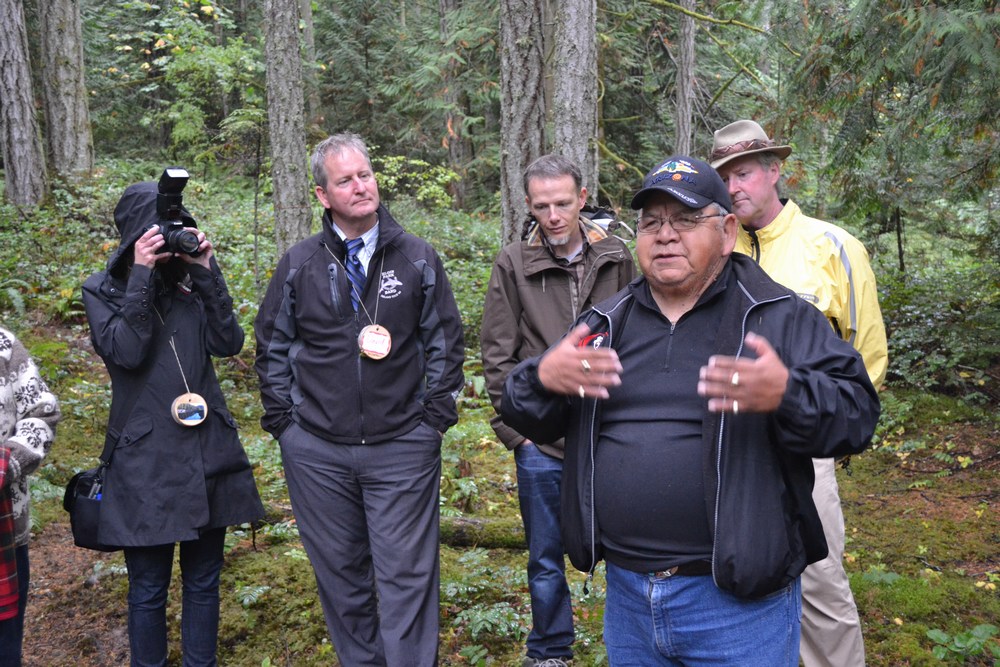BLUE ECOLOGY WORKSHOP – MODULE 4 (Nov 28, 2017): “Blue Ecology is a means to focus, with new watery eyes, because an attitude switch needs to be thrown on the current crisis of climate change,” says Michael Blackstock, independent scholar and developer of the Blue Ecology ecological philosophy
Note to Reader:
The Blue Ecology Workshop on November 28, 2017 will have a town-hall format. Michael Blackstock will be joined by two ‘water champions’ who have achieved national prominence – the CBC’s Bob McDonald, host of Quirks & Quarks; and Member of Parliament Fin Donnelly, who has twice swum the length of the Fraser – along with a supporting cast from the Partnership for Water Sustainability in British Columbia.
Module 4 – Blue Ecology and the
case for “An Attitude Switch”
Blue Ecology is an ecological philosophy developed by Michael Blackstock, professional forester and scholar. Blue Ecology looks at the water cycle differently to interweave First Nations and Western thought.
A Desired Future Scenario
Michael Blackstock has a vision: British Columbia water managers would embrace the Blue Ecology water cycle; our communities would become more water-resilient; and we would successfully adapt to a changing climate.
His innovative thinking is recognized by UNESCO and the International Association of Hydrological Sciences. Global recognition speaks volumes regarding the credibility of Michael Blackstock and Blue Ecology.
To Learn More:
Download “Blue Ecology – interweaving First Nations cultural knowledge and Western science” for a program preview.
To register, visit: https://www.civicinfo.bc.ca/event/2017/Blue-Ecology
Storytelling is Powerful
“We learn from stories. Flashback to September 2014. We begin by setting the scene,” states Kim Stephens, Executive Director, Partnership for Water Sustainability in British Columbia.
“The Regional District of Nanaimo (RDN), a partner in the Georgia Basin Inter-Regional Education Initiative (IREI), co-hosted a walkabout with First Nations elders on the banks of the Englishman River. IREI representatives travelled from the Metro Vancouver region and four regional districts along the east coast of Vancouver Island to participate.”
Reconnect with Nature
“The storytelling by the elders opened our eyes and minds. In the outdoor setting, and with the sounds of the river and birds in the background, the cultural experience was personal and profound.
“The storytelling triggered an Aha Moment about the way water is valued by First Nations. Consequently, the Partnership for Water Sustainability leadership resolved to find a way to connect the dots between Western understanding of the water cycle and First Nations traditional knowledge.”
A Potential Game-Changer
“We then discovered that Michael Blackstock had already trail blazed the way forward two decades earlier when he developed the Blue Ecology water cycle. The next step was to connect with Michael.
:We promptly concluded that the moment had come to mainstream Michael’s vision for Blue Ecology – and especially in the local government setting – because we believed that wholehearted application of this ecological philosophy would be a game-changer for water resource management.”
Blue Ecology: A Water-First Approach
“What we are essentially talking about is reconciliation: going back to the headwaters of where we got our relationships with water and with one another wrong; and then starting back down the river of time – this time together – with a full understanding of the importance of embracing a water-first approach to planning human interventions in the environment,” continues Kim Stephens.
Because Our Climate is Changing
“The warming of the planet’s atmosphere is causing water to move more quickly and disruptively through the global water cycle. Local consequences are magnified.
“To make the right choices moving forward, decision-makers at all levels and scales must understand how and where the rhythms of water are changing. After that, collaborate to adapt our land use and infrastructure servicing practices appropriately
“The gravity of the situation calls for a Whole-System, Water Balance Approach to the built environment. Successful implementation would depend on all the players – including politicians, planners, landowners, designers and implementers – collectively choosing to build on the Blue Ecology philosophical foundation.
“If they did, we would be on our way to ‘getting it right’ as communities develop and redevelop land. So attend the workshop and learn more on November 28,” concludes Kim Stephens.

TO REGISTER, VISIT: https://www.civicinfo.bc.ca/event/2017/Blue-Ecology
Blue Ecology: A Bridging Philosophy
“Over the generations, we have lost our way,” states Michael Blackstock. “Western science is not wrong. It is just not complete. It does not account for water as part of a living ecosystem. The journey to a water-resilient future starts with Western science acknowledging water for its central functional and spiritual roles in our world.
A New Way of Looking at Water
“Blue Ecology is an ecological philosophy, which emerged from interweaving First Nations and Western thought. It is meant to be a companion because it augments existing Western science hydrology rather than displacing this knowledge.
“Hydrologists and water managers can help build a brighter future by rediscovering the meaning of water, and interweaving the predominant Western analytical models with the more intuitive indigenous models. Blue Ecology’s philosophy is meant to be the bridge between these two cultural ways of knowing.
“Blue Ecology is an incremental example of how we can interweave cultural perspectives on water, but that is just a starting point in this new era of interweaving. There is hope for future generations if we take a water-first approach to setting priorities,” concludes Michael Blackstock.

Blue Ecology water cycle and principles, designed by Michael D. Blackstock as a companion to the conventional science-based Water Cycle.



